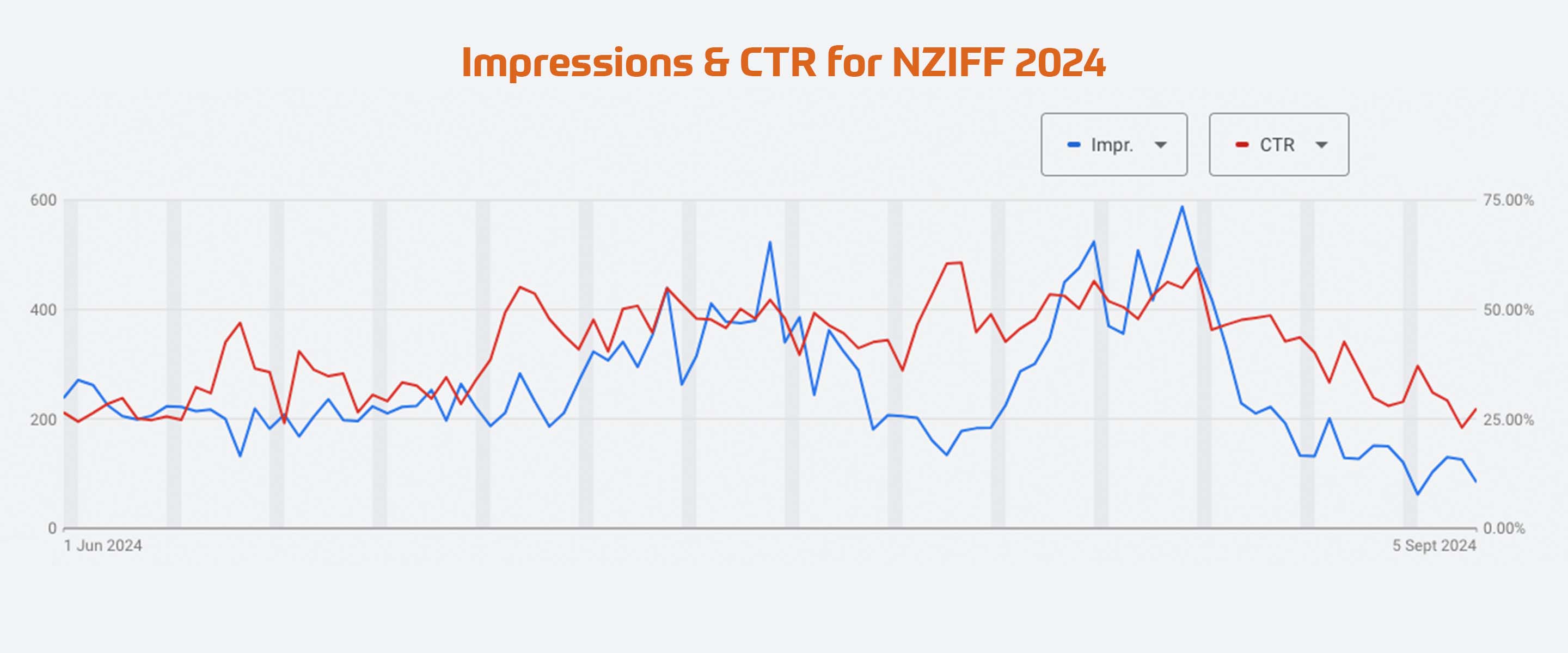Finding funding is one of the biggest early challenges new nonprofits face, especially when trying to get vital programmes and services off the ground. Fortunately, there are a wide range of funding opportunities available across Aotearoa to help new organisations get off the ground.
From government grants and community trusts to specialist support for Māori-led initiatives, arts-based projects, and environmental causes, this guide outlines the key funding sources available to new nonprofits in New Zealand.
We also explore how the Google Ad Grant can help amplify your reach and connect with supporters online.
Funding Sources for New Nonprofits
New nonprofits in Aotearoa have access to a wide range of funding opportunities; from central government schemes to local council grants, community trusts, and private foundations. Below is a breakdown of key funding options by category, with links to explore further.
Government Grants
Government grants are among the most accessible sources of funding for new nonprofits. These are typically administered through government departments that support community wellbeing, health, education, and social services.
A key example is the Community Organisation Grants Scheme (COGS), administered by the Department of Internal Affairs. COGS supports voluntary and not-for-profit groups that deliver services benefiting local communities across New Zealand.
Learn more about COGS and other DIA grants(external link)
Grants for Māori Nonprofits
Māori-led and kaupapa Māori organisations may be eligible for targeted funding that supports te ao Māori aspirations and community development. These funds often recognise the importance of tino rangatiratanga and aim to strengthen Māori cultural, social, and environmental wellbeing.
Notable examples include:
- Ngā Whenua Rāhui Fund – Supports the protection of indigenous biodiversity on Māori-owned land while honouring Treaty rights. Learn more(external link)
- Te Muka Rau – A small philanthropic trust focused on building a socially cohesive Aotearoa where te ao Māori is strong and respected. Learn more(external link)
For a broader list of Māori-specific funding visit Charities Services(external link).
Community Trust Grants
Each region in New Zealand has one or more community trusts that distribute funding to local initiatives. These trusts play a vital role in supporting grassroots efforts and regional development.
Community Trusts typically offer grants to charities and community groups across areas like youth, education, health, environment, and arts. Eligibility and focus areas vary by region, so it’s worth checking with your local trust.
Explore community trust funding options(external link)
Grants for Arts-based Nonprofits
Arts and culture nonprofits can apply for funding through national and regional bodies that support creative initiatives. These grants are ideal for projects involving public engagement, cultural expression, or artistic development.
Key funders include:
Creative New Zealand - Offers a wide range of grants supporting artists, organisations, and community arts. Creative NZ funding information(external link)
Manatū Taonga | Ministry for Culture and Heritage - Supports heritage projects, sector capability, and cultural sector resilience. Apply for Ministry funding(external link)
Charities That Offer Grants for New Nonprofits
Several philanthropic foundations in New Zealand offer grants to other charities and community organisations. These funders often focus on long-term social impact, equity, and innovation. While highly competitive, they are open to new nonprofits with a compelling mission and measurable goals.
Well-known examples include:
- The Todd Foundation - Youth, whānau wellbeing, and systems change. Visit: The Todd Foundation(external link)
- JR McKenzie Trust - Social justice and community-led change. Visit: JR McKenzie Trust(external link)
- The Tindall Foundation - Family wellbeing, environment, and community development. Visit: The Tindall Foundation(external link)
- Weave – Working Together - A networked approach to philanthropic collaboration. Visit: Weave – Working Together(external link)
Environmental and Conservation Grants
New nonprofits working in conservation, biodiversity, climate action, or environmental education can apply for a variety of public and private grants.
The Department of Conservation (DOC) and the Ministry for the Environment (MfE) both support environmental initiatives, including volunteer programmes, restoration projects, and community sustainability efforts. Councils may also provide funding for local eco-initiatives.
More environmental funding opportunities(external link)
Grants for Sports Nonprofits
Sport and recreation-focused nonprofits can apply for funding that supports participation, inclusion, and physical activity in communities. These grants often cover equipment, coaching, programme delivery, and volunteer support.
Key sources include:
- Sport New Zealand – National funding and capability development
- Regional Sports Trusts – Local grants and delivery partnerships
- Local Councils – Community wellbeing and recreation funding

Example of a Grant for a New Nonprofit: the Google Ad Grant
The Google Ad Grant is an incredible opportunity for new nonprofits to enhance their online presence, as it provides eligible nonprofits with up to $10,000 USD per month in Google Ads credits.
This grant allows nonprofits to promote their causes and initiatives on Google search results pages which can drive significant traffic to their websites, increase awareness, and attract more donors and volunteers.
How the Google Ad Grant Can Benefit New Nonprofits
The Google Ad Grant offers numerous benefits for new nonprofits. Including:
- Increased visibility by allowing nonprofits to appear prominently in Google search results without incurring advertising costs.
- Higher website traffic, more engagement with the nonprofit's content, and ultimately, more donations and volunteer sign-ups.
- Additionally, the targeted nature of Google Ads ensures that nonprofits can reach the right audience effectively.
Eligibility Criteria for the Google Ad Grant
To qualify for the Google Ad Grant, nonprofits must hold valid charity status in their respective countries.
In New Zealand, this means being registered under the Charities Act 2005(external link).
Additionally, eligible organisations must have a functioning website with substantial content that meets Google’s policy requirements.
Certain entities, such as governmental bodies, hospitals, and schools, are not eligible, though philanthropic arms of educational institutions may qualify.
Step-by-Step Guide to Applying for the Google Ad Grant
Applying for the Google Ad Grant involves several steps.
- First, verify your nonprofit’s eligibility by ensuring it holds the required charity status.
- Next, register with TechSoup to receive a validation token for Google for Nonprofits.
- Once registered, apply for the Google Ad Grant through the Google for Nonprofits portal.
- After approval, set up a Google Ads account that meets Google’s specific requirements, including structured campaigns and relevant keywords.
- Finally, submit the account for review to start using the grant for advertising.
Maximising the Impact of Your Google Ad Grant
To get the most out of the Google Ad Grant, it is crucial to manage your campaigns effectively.
Here are a few tips to get you started:
- Regularly update and refine keywords to ensure they remain relevant and effective.
- Create compelling ad copy that drives clicks and engages users.
- Monitor your account regularly to ensure compliance with Google’s policies and to track performance metrics.
- Consider using Google Analytics to measure the impact of your ads and make data-driven decisions to improve campaign performance.
Alternatively if you want guidance on how to effectively manage your Google Ad Grant you can get in touch with one of our Google Ads Experts at Somar Digital here.

Case Studies: Success Stories of New Nonprofits Using the Google Ad Grant
At Somar Digital, we’ve helped numerous nonprofits unlock the full potential of the Google Ad Grant to drive awareness, engagement, and impact. Here are two examples of how we’ve supported well-known organisations to use their grant effectively.
New Zealand International Film Festival (NZIFF)
We worked with NZIFF to take their Google Ad Grant performance to the next level by implementing a highly targeted strategy aligned with their nationwide film programme. Our team carried out detailed keyword research, restructured campaigns, and created location-specific ad groups to better capture audience interest in each city.
The result? NZIFF achieved improved ad relevance, higher click-through rates, and better use of the full $10,000 USD monthly grant allocation.
Read the full case study → NZIFF Google Ad Grants Case Study
Cancer Society of New Zealand
We partnered with Cancer Society NZ to optimise their use of the Google Ad Grant, focusing on increasing visibility for key health services and public education initiatives. Our improvements included restructuring their campaigns to align with health awareness events and refining ad copy to better connect with people seeking support.
As a result, Cancer Society saw increased traffic to high-value pages, including resources for cancer prevention, screening, and support services. Their improved account structure also ensured compliance with Google Ad Grant policies, making the grant more sustainable long term.
Read the full case study → Cancer Society SEM Case Study
Conclusion: The Importance of Grants for New Nonprofits
Securing funding is a vital step in establishing and growing a new nonprofit. From government and community grants to philanthropic trusts and targeted funding for specific causes, there are a wide range of opportunities available across New Zealand.
In addition to financial support, tools like the Google Ad Grant can help new nonprofits boost visibility, reach the right audiences, and drive meaningful engagement online. By exploring the right mix of funding sources and making strategic use of digital tools, new nonprofits can set themselves up for long-term impact and sustainability.




